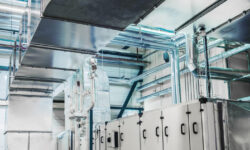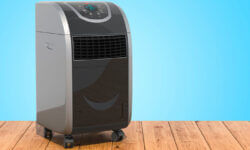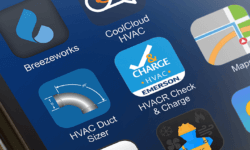As winter comes around, there will be numerous things to do to prepare your commercial building. Getting your HVAC systems ready is one of them, and going with the professionals can help you in more ways than you might think.
Read more →Air handling units (AHU) are used in medium- and large-sized industrial or commercial properties to condition and distribute fresh air throughout the building. An AHU is part of the larger HVAC system (heating, ventilating, and air conditioning). The device takes air from the outdoors, cleans and conditions it, and heats or cools it as needed. Read on to learn more.
Read more →If you’re a commercial property owner or if you’re a businessperson who leases commercial property, you have to deal with maintaining the building’s HVAC system. Who should pay for this regular and necessary maintenance – the property owner or the tenant?
Read more →A properly functioning commercial HVAC system makes for a comfortable workplace, but the benefits don’t end there. An efficient HVAC system can lead to healthier employees, less environmental impact, and savings. Every part of a commercial HVAC system is important for functionality, all the way down to the tape used to seal the ductwork. It’s worth taking the time to understand what makes for good HVAC tape. Is your HVAC tape doing the job?
Read more →Businesses have different needs when it comes to heating, ventilating, and air conditioning buildings and facilities. What every business has in common, though, is the desire to save money. Commercial enterprises analyzing their HVAC requirements can consider using portable spot air conditioners. Read on to know about these compact air conditioning units and if they’re right for your business.
Read more →The Most Useful HVAC Apps for Technicians In every service industry, time is money. For HVAC technicians, getting the job done correctly the first time takes years of experience. This is a mix of education and attention to the finest of details. However, just like in so
Read more →According to the Centers for Disease Control and Prevention (CDC), HVAC systems present a significant risk of COVID-19 exposure to workers in office buildings. Therefore, in order to protect staff, reduce costs, and improve the indoor climate, it’s time to start planning how to improve your system over the coming year. Here are the top five New Year’s resolutions you should set for your commercial building’s HVAC system.
Read more →Many large commercial buildings use rooftop systems, also called packaged HVAC systems. While common, not all smaller commercial buildings use them. Some still use split systems, which tend to be more common with residential buildings. Essentially the difference between split systems and a rooftop system is in the name. Half the unit is inside, half of it is outside. Packaged systems are all in one unit. In commercial buildings, they are referred to as rooftop systems because that is typically where you find them.
Read more →‘Tis the season for fall and winter maintenance checklists galore. However, not all buildings are created equal, so should all HVAC maintenance lists be? Not really. While there are some commonalities across most commercial buildings, they can vary. So, that begs the question, what is the best HVAC maintenance list for your building? We have talked about typical fall maintenance but now, let’s break it down by building type and what could change.
Read more →Air handlers work with an air conditioning unit and/or heat pump to circulate air. They help make the system more energy-efficient and generally come in a large rooftop unit. Although, there are different areas in which you may find an air handling unit. It contains a blower, filter racks, cooling or heating elements, dampers, and sound attenuators. Air handlers also connect to the building’s ductwork ventilation system. There are a lot of misconceptions and basic information you need to know about an air handler. Here are the top five important things to know.
Read more →









